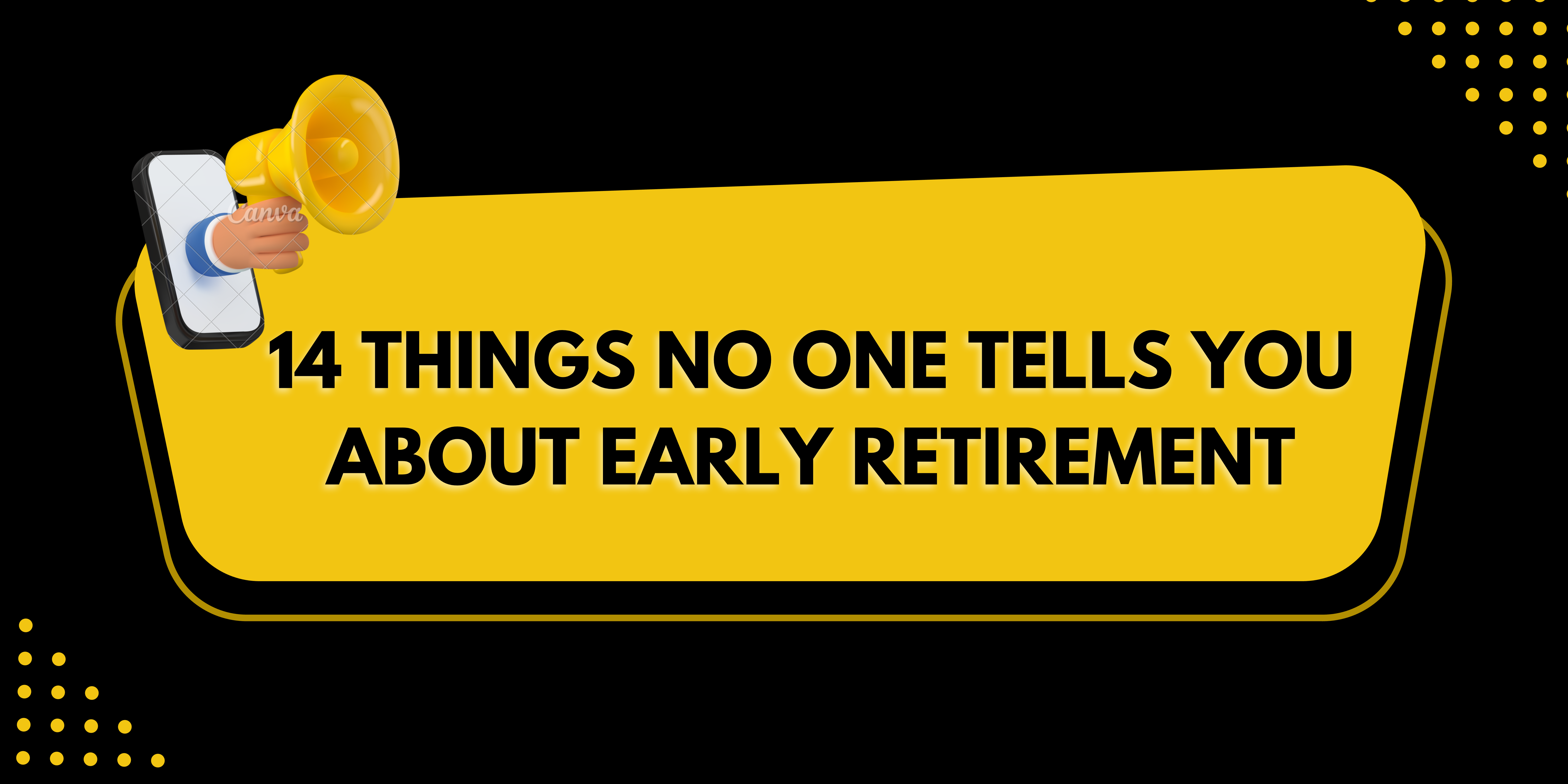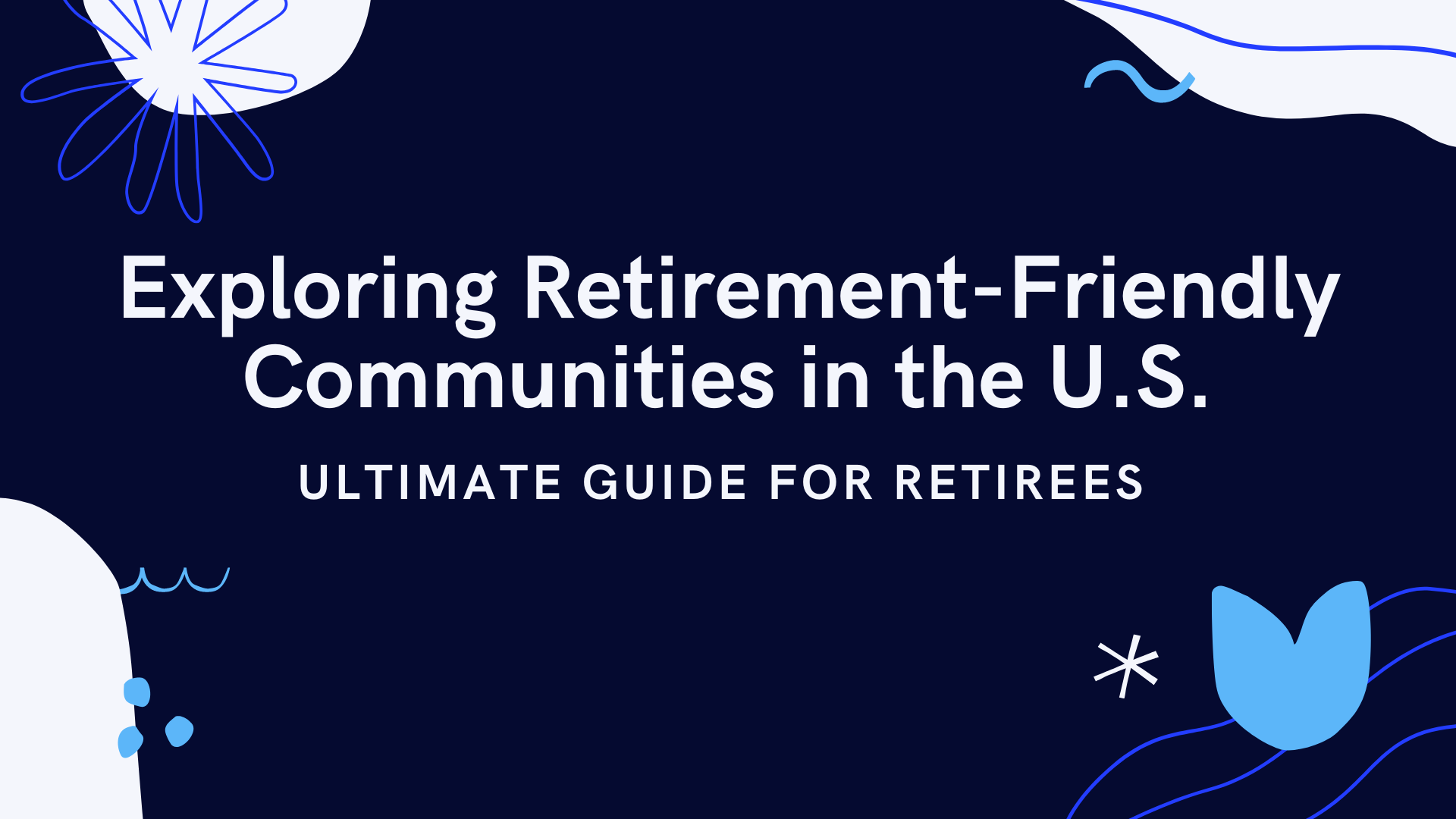14 things no one tells you about early retirement


Early retirement has become a trend in our ever transforming society with different opinions, here's a comprehensive list of things no one tells you about early retirement.
Table of Contents
- Defining "Early" Retirement
- Financial Health for Healthcare
- Attainable Steady Living
- Housing Payment Strategies
- Passive Income for Early Retirement
- Priorities in Early Retirement
- Challenges of Early Retirement
- Fresh Start in Early Retirement
- Evaluating Retirement Choices
- Wellness and Enjoyment in Retirement
- Retirement Fund Access Costs
- Adapting to Retirement Life
- Building Fresh Friendships
- Challenges in Retirement Relationships
- Wrap Up
Defining "Early" Retirement
Early retirement offers the freedom of setting your own timeline, in contrast to the typical retirement age, usually around 60. You're in control, and there's no need to succumb to external pressures.
If your vision of early retirement means not working by the time you hit 30, you can make it happen. The key is meticulous planning, not just financially but also in terms of what you want to achieve.
The responsibility and success of early retirement rest solely with you. It's a double-edged sword, but for the most part, it represents the initial taste of your newfound freedom.
Financial Health for Healthcare
One of the perks of having a job is that your employer often helps cover your healthcare costs. This can be a real lifesaver, especially if you or a family member depends on regular medical care. Even if your job doesn't offer this benefit, a steady income allows you to save money for your healthcare needs.
However, if you decide to retire early, you'll lose this valuable benefit, and taking on healthcare expenses can be quite expensive. In the United States, the average person spent $12,100 on healthcare in 2020. While the government offers some assistance, early retirees won't have access to it until they turn 65.
Depending on when you plan to retire, this could mean handling years of substantial healthcare expenses, which can put a strain on your finances. So, it's crucial to plan ahead and have a substantial emergency fund specifically earmarked for these healthcare costs.
Attainable Steady Living
Early retirement is often considered costly in the long run, but it might not be the same for everyone. If you've been a diligent saver, have a well-thought-out financial plan, established additional income streams, and factored in inflation, you could be well-prepared to bid farewell to your working years and enjoy a comfortable retirement.
Retirement doesn't imply giving up on income opportunities. Today, there are numerous ways to generate passive income while enjoying your retirement. Options include investing in stocks, cryptocurrencies, or turning your passion into a livelihood.
Moreover, making prudent financial decisions such as budgeting, daily expense tracking, utilizing coupons and promotions, and curbing impulsive spending, particularly on expensive items, can help effectively manage your finances during early retirement.
Housing Payment Strategies
Unless your decision to retire early is accompanied by the relief of paying off your monthly mortgage, you'll need a plan to handle those ongoing payments.
Mortgage expenses can be quite hefty, especially when you no longer have a reliable income source. Additionally, future repairs can add to your financial burden.
Don't forget about property taxes, which may increase depending on the economic situation in the years ahead.
It's wise to prepare for the worst-case scenario, as inadequate funds could lead to significant financial challenges down the road. So, being proactive and having a solid strategy to manage these housing-related expenses is crucial for a worry-free early retirement.
Passive Income for Early Retirement
Even if you've made the bold decision to break free from the grind of demanding work hours and tedious responsibilities, the world won't stop demanding that you cover the costs of living.
Expenses keep piling up – there's the need to put food on the table, pay those never-ending bills, and, as cliché as it may sound, find happiness and enjoyment in life. All of these essentials come with a price tag, and to meet those needs, you'll still need a source of income. Unless you're sitting on a massive fortune, your savings can only stretch so far, no matter how wisely you manage them.
Now, if your vision of retirement involves leisurely days sipping margaritas on a tropical beach without a care in the world, that dream usually hinges on generating passive income.
You might not need to cover 100% of your expenses, but having a stream of income that lessens the withdrawals from your savings is essential to make your retirement funds last a lifetime.
If you don't have passive income, you might find yourself back in the workforce. It could be in a different capacity, like a part-time remote or work-from-home job, or you might even need to return to full-time work.
This is why, for many early retirees, the transition isn't so much retiring as it is swapping one type of work for another. Unless you happen to be a fortunate heir to a vast family fortune, you'll likely need some form of income to maintain the retirement lifestyle you desire.
Priorities in Early Retirement
Money, while still important, doesn't dominate your life the way it did when you were tied to a nine-to-five job. Early retirees seek liberation from the corporate grind, and that's their primary focus.
Retiring early with financial worries doesn't add up, right? It's a truth no one seems to emphasize as you approach retirement. This realization might hit you as you hand in your resignation or dawn on you later. Yet, if you haven't planned your retirement wisely, it can put you in a tight spot.
You don't want to revel in a few joyful years of retirement only to be jolted by the harsh reality that you're financially drained and need to return to work. So, while the focus is on freedom, it's essential to balance it with a solid financial plan for a worry-free retirement journey.
Challenges of Early Retirement
Early retirement might not be the right path for everyone, and even for those considering it, it may not always be the best choice. On the surface, the idea of leaving work while still young seems alluring, but it can have lasting consequences that don't align with everyone's values. Aside from the potential financial challenges, there's the risk of losing control over your life.
Certainly, early retirement comes with its advantages. It allows you to focus on neglected interests, rest, enjoy your hobbies while you're young, and simply have fun. However, if you've checked all these boxes and still wonder, "What's left for me to do?" it could be a sign that early retirement may not have been the ideal decision.
This feeling is often tied to our fundamental needs and priorities, as illustrated by Abraham Maslow's hierarchy. Early retirement might compromise our sense of belonging, as work often makes us feel part of something greater.
It can also impede our personal growth and self-fulfillment, potentially leading to a sense of disappointment as we approach the later stages of life.
Fresh Start in Early Retirement
One of the beautiful aspects of early retirement is that there's no specific right time to embark on this journey, just as there's no limit to when you can start over in life.
Early retirement grants you the opportunity for a fresh beginning, a clean slate to design your life as you envision it. With both control and resources at your disposal, you can shape your life according to your desires.
Moreover, the path you choose after retirement is entirely up to you. Whether you want to return to school, create an art studio, or immerse yourself in your passion for baking, the possibilities are endless. No explanations are needed, and you have the freedom to live life on your own terms, just the way you want it.
Evaluating Retirement Choices
Even in the realm of early retirement, where it seems you have complete control over your life, you'll still need to carefully assess your choices and make wise decisions to ensure your retirement journey aligns with your vision.
It might mean relinquishing certain opportunities to embrace others, and at times, prioritizing your happiness might necessitate trading off some other forms of convenience. In the end, finding the right balance is essential in crafting a fulfilling early retirement.
Wellness and Enjoyment in Retirement
Retiring later in life comes with the advantage of having ample time, but it often restricts your ability to truly relish that freedom due to age-related constraints. On the other hand, early retirement offers the perfect blend of time and vitality, allowing you to fully embrace life's opportunities.
When you retire in your twenties or thirties, you can start checking off every item on your bucket list. Whether it's exploring Greece, adopting a furry companion, immersing yourself in museums, penning your novel, or conquering the dusty stack of unread books in your room, the possibilities are endless. Before you know it, your bucket list might need an extension to accommodate all the exciting experiences you'll have.
Retirement Fund Access Costs
Retirement funds are typically designed for those who retire at the usual retirement age, not for early retirement. The fees and penalties can add up when you want to access your funds early, depending on your initial investment choices and how long your retirement fund has been growing.
For instance, if you've invested in a 10 or 20-year deferred annuity and need to make a withdrawal during the growth period, you'll likely face substantial fees that decrease the longer you wait. Moreover, if you funded your annuity with money from a 401(k) and aim to withdraw before reaching 59½, the IRS will impose a 10% early withdrawal penalty.
So, retiring early can indeed be expensive if you don't navigate the financial landscape carefully.
Adapting to Retirement Life
Early retirement often aims to break free from the daily grind of a nine-to-five job and its routine lifestyle.
However, transitioning into a new routine after retirement can be a challenge, and the adjustment period varies from person to person. Some might adapt within a few days, while for others, it could take months or even a year.
The key is not to rush this adjustment. After all, the beauty of early retirement is that time is on your side. You can take as long as you need to find a new rhythm or even decide that you don't need one at all.
Embrace the freedom to make this transition at your own pace, as deadlines become a thing of the past when you retire early.
Building Fresh Friendships
When you decide to retire in your 50s, you might notice that your existing friends are not as available as they once were. You now have the freedom to enjoy mid-week activities like catching a movie or a leisurely round of golf, but your friends who are still in the 9-to-5 grind might not share the same flexibility. This can lead to a shift in your social dynamics as you navigate the early stages of retirement.
Challenges in Retirement Relationships
Retirement marks a significant shift in life, and it's often quite different from the picture-perfect couples you see in advertisements. One crucial aspect is figuring out how your household responsibilities will evolve.
Additionally, you'll need to explore shared activities as well as those you prefer to pursue independently, as you embark on this new chapter of life. It's a journey of adjustments and new discoveries that's uniquely your own.
Wrap Up
The choice of early retirement is a deeply personal one, and you hold the reins when it comes to making this decision. If you're unsure about what to expect when you embark on this journey, the points discussed above provide a glimpse into the reality that early retirement entails.
Much like many other decisions in life, retiring early comes with its share of advantages and challenges, and it's essential to weigh both before making a choice.
Ultimately, the terms and timing of your retirement are yours to determine. However, the path it takes will be shaped by the choices you make as you take that courageous leap into the unknown. It's a journey filled with possibilities, and the outcomes are guided by your unique decisions.



